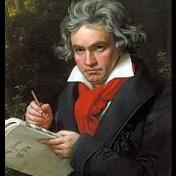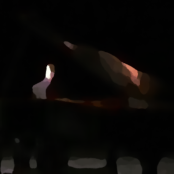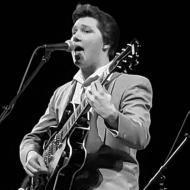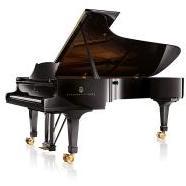Search the Community
Showing results for tags 'suite'.
-
hello been taking a break from working on the variations, thought I'd continue working on this piece. if you had already read my catalogue, then you'd have probably known the other planned movements already. movements planned: No. 1 : Whimsy No. 2 : Home (Omah) No. 3 : Scherzo No. 4 : Affection No. 5 : Festive i'll continue to work on the variations after this as always, enjoy the piece. lemme know what you all think!!!
-
Op.6 Symphonic Suite from Freyja - Vanadis
Vladisove posted a topic in Orchestral and Large Ensemble
Hey everyone! My name is Vlad, and in my free time, I dabble in composing what I like to call "pseudo-academic" music. I have absolutely no formal music education—just countless hours spent listening to classical works. I’d love to share my Symphonic Suite from Freyja - Vanadis, a piece heavily inspired by Sibelius and Wagner. -
BEFORE you click away... hear me out. 😅 I know what seems like the same piece was posted, not so long ago. Well... This is no longer the same piece. As mentioned, an orchestra group in my area may be playing this. They suggested I make some changes to the length and voicings throughout the composition. This is the version where I have done so. Although, the ending is quite bland... I'm not too sure what to do there, for some reason, but nonetheless, it is technically a completed piece. If Anyone has some suggestions to that regard, I'm all ears, but the rest of this composition is otherwise completed! Let me know what y'all think 🙂 See the MuseScore Post, Here. Long Arctic Night (Suite).pdf Long Arctic Night (Suite).mp3
-
Hewwwoo, it's me again. Sorry for the long wait for those of you waiting for this damn suite to be complete (probably no one tbh). It's really hard for me to find motivation for this suite, especially when school was in the way. But I'm back now, ready as I ever be! This piece was really fun to compose, probably my favorite out of the 6. I've also completed the composition for the 6th piece (Eva, The Mysterious Herbal Wanderer). Just need time to do some finishing touches. Feedback is appreciated. Hope you enjoy this one! "The Six Adventurers" is a suite which took characters from a role-play story to a musical level of interpretation. Each pieces are named after the characters. The suite is dedicated to a part of a role-play storyline from a role-play server called "Wild West RP" set in 1899 from the game Red Dead Redemption 2 with modded servers from the mod RedM. Here are the titles for each pieces: No. 1 : Bery, The Huntsman. (https://www.youngcomposers.com/t41558/the-six-adventurers-no-1-bery-the-huntsman/) No. 2 : Susie, The Gunslinger. No. 3 : Calvin, The Carolina Ranger. No. 4 : Enola, The Nightstalker. (https://www.youngcomposers.com/t41611/the-six-adventurers-no-4-enola-the-nightstalker/) No. 5 : Shadow, The Chief of Wapiti. (https://www.youngcomposers.com/t42316/the-six-adventurers-no-5-shadow-the-chief-of-wapiti/) No. 6 : Eva, The Mysterious Herbal Wanderer. The piece itself involves a character named Shadow Bear, the Chief of the Wapiti tribe (played by SprayNprayErik on Twitch) and his adventures and shenanigans trying to organize the biggest tribe in the state while trouble and unfairness is always watching, coming, and attacking. Score added!
-
So, I have made some significant progress in composing my Romantic Dance Suite that I mentioned here: A little of this progress is in the Polonaise, but most of the progress I have made is in the second dance, the Mazurka, of which I wrote down 40 bars in 1 hour. That's like the fastest I've ever composed a piece. Even my Minuet, another short dance, wasn't that fast in composition rate. So far I have this structure: A |: B A : | of a piece that I think will end up in this structure: A |: B A : | |: C A : | a simple Rondo Form typical of short Rondos and Rondo form pieces. Even my A section can be broken down into 2 periods and 4 phrases, like this: If I do a Double, as I am considering doing(I would consider doing it for the Waltz too, but I'm not there yet), that would mean most likely Mazurka II being in the parallel minor, which means that the C section of Mazurka I probably shouldn't be in the parallel minor. I just feel that it needs the minor key contrast though. I guess the relative minor or the mediant minor will do. Or maybe the chromatic mediant of F# minor? I'm unsure which minor key to go with, just that I want a minor key contrast other than the parallel minor for the C section, as the Double would be in the parallel minor. I know what a Double is, it's a second dance, usually Baroque, that develops the same melodic material in a different way, the 2 most common Doubles I have seen are that of Diminution(Polonaise of Orchestral Suite no. 2 in B minor) and Parallel Minor(Bouree of Cello Suite no. 3 in G major). Anyway, what do you think of my Mazurka thus far? And what about the key for the C section? As I said before, I'm unsure which minor key to have the C section in. How well do I do that V7/V -> V7 -> I move in Bar 24? Anything I can improve about that V7/V -> V7 -> I motion in Bar 24 or other parts of the Mazurka thus far(I'm thinking of adding some staccato in the dotted rhythms)? Does it feel as though the accent is on the weak beats, because that's important in distinguishing a Mazurka from a Waltz is the accent on weak beats? I will add dynamics later on, they always come after the notes and articulations in my compositional process.
- 4 replies
-
- 1
-

-
- romantic era
- mazurka
-
(and 2 more)
Tagged with:
-
Hi I like baroque suites, and the way the composers organized the dances in some sort of geographical classification: English Suite, French Suite, Italian Suite...... Why not a Spanish Suite? Is it possible. Some dances in those suites came from Spain: Folia, Sarabande, Passacaglia... I needed more dances with the Spanish flavor. Undoubtedly, many of them are touched by the flamenco "sound" or style. In fact, flamenco music developed in the 18th century, ...., no doubt it took its roots from much earlier, from Arabian and Mediterranean scales and from the Dorian mode in the Ancient Greece (which is not the dorian mode we know today). I have found some dances that are present all over the country: jota, fandango (we have some from Baroque), etc.... And some that are almost lost or limited to small areas. I want to r¡write a whole suite with this dances. It's interesting and funny doing some research and trying to put this music in the piano. The piano was not an instrument of flamenco music, untii the las past or the 20th century with fusion music (flamenco-pop, flamenco-jazz, also academic). Not easy to get the sound in the piano. One of those dances I found is the ZORONGO. This is a word almost nobody knows in Spanish. It means "headscarf", but we don't know if it has some link with the dance... Perhaps... Also, Zorongo is this dance. It includes the Andalusian cadence. And this is what I did.... Should I go on with this project?
-
I know it has the anachronism of using a piano with pedals, but during the 19th century there were a lot of baroque reworkings and pastiches that got away with this (e.g. Busoni), so I don't care. Also, people loved Gould, even though Bach played on the piano is an anachronism too. I like to think of this piece more of a 19th century transcription of a baroque piece for other instruments.
-
So, I've made significant progress in this Gavotte over 5 days. This is how I've progressed over the past 5 days: Day 1: First Phrase melody and bass Day 2: Second Phrase melody and bass Days 3 and 4: Thinking about what to do for the B section, listening to more Baroque Suites, especially Gavottes, even playing some Gavottes on the piano Day 5: Third and Fourth Phrase melody and bass, First and Second Phrase countermelody Not all of my countermelody ideas worked out, but a few of them, like the inversion idea did work. One that didn't work out like I hoped is the suspension chain idea. I mean it kind of worked, but what I was going for was like an F# followed by an E or some other diatonic note in a suspension chain and only the F# suspension worked. I did get a chain of 2 suspensions with the C and B though, so not a total failure, just not what I was going for initially. I used another tied note to prevent parallel octaves and have a stepwise motion in bars 11 and 12. The countermelody I have though is just a draft and is unlikely to be the final countermelody when the Gavotte is finished. I was mainly going for a balance between leaps and steps, richer harmony, and no parallel octaves. And I made sure that if the countermelody got a ninth or further from the main melody, that it was at most an octave away from the bass. At first, I was a bit worried that I'd have to change the bass line, but somebody else told me that the motion of the left hand reminds them of the Baroque, so I've left the bass line as is. You can tell which line is the countermelody, because it has all the stems pointed down. I haven't decided yet if I'm going to double the Gavotte and have Gavotte II in G minor followed by a Da Capo to Gavotte I, but this Gavotte is going to be part of a suite. Here's my Gavotte as of now.
-
Heyo there! I'm back with more piece for The Six Adventurers. I guess the release of each pieces will not be in order, because some stories are still going on and some has stopped, and how I feel on the stories of each characters. I'm also planning to add a cadenza at the end of the suite that will contain the materials from the pieces that are included on the suite. However, the materials that will be more dominant in the cadenza are from No. 5 and No. 6 since it is about the events that happen after No. 6. So yeah, look forward for more pieces! (I have finished composing the first draft of the cadenza, I've decided to use the materials just from No. 5 and No. 6) "The Six Adventurers" is a suite which took characters from a role-play story to a musical level of interpretation. Each pieces are named after the characters. The suite is dedicated to a part of a role-play storyline from a role-play server called "Wild West RP" set in 1899 from the game Red Dead Redemption 2 with modded servers from the mod RedM. Here are the titles for each pieces: No. 1 : Bery, The Huntsman. (https://www.youngcomposers.com/t41558/the-six-adventurers-no-1-bery-the-huntsman/) No. 2 : Susie, The Gunslinger. No. 3 : Calvin, The Carolina Ranger. No. 4 : Enola, The Nightstalker. (https://www.youngcomposers.com/t41611/the-six-adventurers-no-4-enola-the-nightstalker/) No. 5 : Shadow, The Chief of Wapiti. (https://www.youngcomposers.com/t42316/the-six-adventurers-no-5-shadow-the-chief-of-wapiti/) No. 6 : Eva, The Mysterious Herbal Wanderer. The piece itself involves a character named Enola (played by RevieReyes on Twitch) and her new adventures in the state of New Alexandria after escaping an evil company who enslaved her for a long period of time. Please read the detailed explanations for more information about the piece! (just scroll for a bit until you reach No. 4). Sheet music has been released. Updated detailed explanations. Feedback is always appreciated!
-
Howdy there! I've worked on this piece for a while now, but only uploading it here today. This piece is supposed to be part of a suite - hence "The Six Adventurers" - but the other pieces are still in the works. "The Six Adventurers" is a suite which took characters from a role-play story to a musical level of interpretation. Each pieces are named after the characters. The suite is dedicated to a part of a role-play storyline from a role-play server called "Wild West RP" set in 1899 from the game Red Dead Redemption 2 with modded servers from the mod RedM. Here are the titles for each pieces: No. 1 : Bery, The Huntsman. (https://www.youngcomposers.com/t41558/the-six-adventurers-no-1-bery-the-huntsman/) No. 2 : Susie, The Gunslinger. No. 3 : Calvin, The Carolina Ranger. No. 4 : Enola, The Nightstalker. (https://www.youngcomposers.com/t41611/the-six-adventurers-no-4-enola-the-nightstalker/) No. 5 : Shadow, The Chief of Wapiti. (https://www.youngcomposers.com/t42316/the-six-adventurers-no-5-shadow-the-chief-of-wapiti/) No. 6 : Eva, The Mysterious Herbal Wanderer. The piece itself involves a character named Bery Quigley (the character is played by Bizcotto on Twitch), and his journey towards finding his true purpose on life, with many life and death experiences, friends and company he made along the way, and his true lover and fiancé, Susie Quincy (character played by PeachTreeMcGee on Twitch). The sheet music has been updated. The detailed explanations now include No. 4 : Enola, The Nightstalker. Feedback is always appreciated!
-
Hi, This is the newest movement of my orchestral project, Suite of Minimalism. I cannot decide if I am fully happy with it like the other two movements, and I would like your idea of how the ending could be improved, and if you guys even like it. Philip's Time Machine has some of my favorite moments of music I have written yet, but I can almost tell the second half of the piece sounds rushed. Maybe I am crazy though. If you guys agree and give me some pointers, I will probably spend more time working on it and be back here in another few weeks.
- 2 replies
-
- 1
-

-
- minimalism
- orchestra
-
(and 3 more)
Tagged with:
-
It's interesting to study these dances, their rhythms, etc.... I wrote this just to learn. They don't follow the baroque rules about form or harmony. Some people ask me to write the chord names, so I leave them.
- 7 replies
-
- 1
-

-
- suite
- neobaroque
-
(and 2 more)
Tagged with:
-
From March to May, I was in hospital, seriously affected by coronavirus. I got it at work... In many senses, this changes you life. Three weeks in a coma is a peculiar experience. After being discharged I couldn't do anything (write, work, talk, etc....). This is the first thins I wrote, now I have ordered it and put it in a little suite. Many ideas were fragmented and simple. I friend of mine helped me with some titles and phrases... People who suffer from this at this level never recover at all.... But I'm alive, I'm lucky.
-
Come critique me! This 10-minute piece is my 4th complete piece over the past year (ever) and is in 3 movements, which are shown in-video. Inspired by the mountains of the world, this piece is a way to express my love for nature and my desire to explore the world around me. Video :https://www.youtube.com/watch?v=1GcnyomDeMk&feature=youtu.be Score: https://www.dropbox.com/s/h1zs3c4acoxht17/Mountains_Suite.pdf?dl=0 Thanks to anybody who provides constructive feedback! (This was copy and pasted from a reddit post on r/composer, so excuse the fact that it links to a dropbox. If this is against the rules or it needs verification (it's a pdf file), please let me know in the comments.)
-
I started writing a suite for Solo Piano with the theme of 12 months of the year. I also am writing a poem related to each month as an epigraph for each movement. This first post will be about the January Movement. I do multiple things to get across the feel of January. Here is what I do and what it represents: Grace notes and staccato: Snowfall Slow tempo arpeggios: Walking through the forest Episodes of G minor and a single episode of C major: Lamentation, like "Oh, when will it warm up? It is so cold out here that I could freeze if I didn't have this coat on. I really hope it is soon." Major key melody in octaves or with full chords underneath(most of the time D major, but other keys are also used): Hope Minor key melody in octaves: Hope is extinguished Major over minor polytonality: The question of if there is hope Trills and/or alternating bass: Shivering, the combination of trills and alternating bass portrays more shivering than either trills alone or alternating bass alone, loud dynamic, even more shivering Fast scale motives of 4 notes each, rising: Wind Gust False ending - Leads into a Coda Pedaled arpeggio across the keyboard followed by quiet chord - True ending of the piece How well do you think I portrayed the cold weather and the feel of the month of January? And what do you think of my January poem that is right above the score? Also, what key do you think I should have the February movement in? Oh, before you can answer that, here is what I am planning as far as keys: January: D minor Other months: Some key trajectory that smoothly takes me to my target December: D major And here are the keys I have thought of maybe having the February movement be in: G major - Major subdominant of D minor A major - Dominant of D minor C major - Unrelated harmonically to D minor, but close in proximity to it(I don't consider the I - ii relationship to be a close harmonic relationship at all) Bb major - Submediant of D minor F major - Relative major of D minor D major - Parallel major of D minor If it helps, here are the keys I have thought of having the March movement be in: D major F major Eb major Bb major I know that I don't want to hit the D major key too early on in the piece, otherwise it might sound like the ending(most minor key pieces I know that end in the parallel major delay the parallel major until the last minute or in multi-movement works, the last movement. And Beethoven, the composer of most influence on me, he sometimes sets up a Picardy Third only to later say "Nope, I'm going to end this in the minor key it started in."(I know for a fact that he does this in the first movement of his Fifth Symphony and the Rondo of his Pathetique Sonata). So, anyway, what do you think of my January Movement of this suite and the poem that corresponds to this movement? And, any ideas as to which of the 6 keys I proposed for the February movement should be the actual key of that movement? Because, that is what I will be composing next is the February movement. I plan for the February movement to have a warm tone(thus the major key), a feel of love, a more obvious melody, and sort of a waltz feel to it(definitely will be in triple meter), there will still be some of those trills and alternating bass to evoke the cold temperatures, but not as many.
-
This "Beginner's Piano Suite" marks my so-called '3rd Opus", which sounds so odd to say. (The idea of having an "Opus" sounds awful self-important to my ears, but at the same time, it gives a sense of beginning, middle, and end, and the thought of "I'm done with this, I'm moving on to something else" is liberating, so I really like that aspect of it!) Here's a little backstory. For one thing, I was tired of making pieces of piano music that were extremely difficult to play, and I have a fondness for pieces that are simple, straightforward, and "tell a story", so to speak. So I tried to tone down virtuoso writing as much as possible, and focus on "what" I wanted to say, instead of "how" to say it. I took some inspiration from the idea of video game music, thinking of a scenario or character and having that be what started me off. Most of them are played at a really slow tempo, which is inherently easier to play. A couple are more up-tempo, and probably offer the greatest challenge. Some sections may be tricky, and might be cheating to have in a "Beginner's Piano Suite", but I did my best. It's not a very long suite. There are seven pieces, and to listen to all takes maybe 15-20 minutes or so. Here they are: https://app.box.com/s/3i5d36uhkfwmd0gj5b84jmqplhoioebp [Op. 3 No. 1, "Dawn's Lullaby" WAVE File] https://app.box.com/s/0ecvpduruu110pa9ukksgty2bqmlt8jx ["Dawn's Lullaby" PDF] https://app.box.com/s/9rknasfzt22sdm8kcqx1ot7jzq7ei9y7 ["Op. 3 No. 2, ""A Lamentation" WAVE File] https://app.box.com/s/nfclmphylif5ztavoq7t1d5h5p6y6ifq ["A Lamentation" PDF] https://app.box.com/s/csiounws38ep6waojlityorrdofgt3z1 [Op. 3 No. 3, "Cynical" WAVE File] https://app.box.com/s/rrdfpfkmwortupqtqb1hqh581u16kevb ["Cynical" PDF] https://app.box.com/s/oa840nl7vfyadcv3ey0302fwotrar8h3 ["Op. 3 No. 4, "The Fireplace" WAVE File] https://app.box.com/s/p8haj6opgevr8g90v2i0z9b2qitdxxz9 ["The Fireplace" PDF] https://app.box.com/s/yumtrw9w5rlppww2pi5m0dix24a206jg [Op. 3 No. 5, "Resistance" WAVE File] https://app.box.com/s/fg5mr8o4x6ydnsloqp5q6a82vcrgcz09 ["Resistance" PDF] https://app.box.com/s/5ilpdnvqx27gyj05l7atnyc3d9ar414c [Op. 3 No. 6, "Remembrance" WAVE File] https://app.box.com/s/vgaadllbnc1izmm7meits7vzom2x9rmc ["Remembrance" PDF] https://app.box.com/s/tv8akqk6i409ibxz3i5187571syxwpjn [Op. 3 No. 7, "Adagio" WAVE File] https://app.box.com/s/qhompslta6x3wzh1owzj2a6g7tu74a2m ["Adagio" PDF] Thoughts/comments/criticisms all welcome. Thank you!
-
I have decided to make a progress post for my suite so that I can get feedback on each of the movements without having to make multiple posts. This starting post will be about the first movement of my suite. I initially planned for the melody to not be in ternary form while the harmony was in ternary form, but the melody ended up being in ternary form. I chose the key of G major because it sounds warm to me. To reinforce this, I decided on the instrumentation being string quartet + piano. I use a sequence to modulate from G major to D major as a transition into the B section. So, I guess you could call it ternary sonata form, whatever that means. I include a short canonic passage in the B section of the piece after I have established D major as the tonality. Afterwards, there is a short transition back to the A section. This emphasizes the subdominant and even includes plagal motion. After the themes of the A section are played, there is a passage that includes 2 creschendos. And then the movement ends with a plagal cadence at fortissimo. What do you think of it? Did I get that warm, sunny quality that I was aiming for? Here are the mp3 and pdf:
- 3 replies
-
- chamber music
- chamber ensemble
-
(and 1 more)
Tagged with:
-
This is a set of preludes I composed and recorded for the piano, and the set tells the narrative of a maritime journey, detailing the calm sea, the time spent on the ship, the lighthouse on land, the seabirds, and finally the port. I made these pieces the bulk of my newest album, and it can be found here. Thanks, and let me know what you think.
- 3 replies
-
- classical
- impressionism
-
(and 3 more)
Tagged with:
-
I've posted these before but I though I'd share it again as I made some minor edits since it was last posted on some of them. This is a set of six pieces dedicated to my daughter that I wrote around the time she was born four years ago. The keys of the pieces (loosely) spell out her name. They have a pretty large range in terms of difficulty since I initially set out to write short simple pieces suitable for an intermediate level piano student but over time, they evolved to become more thematic in nature loosely depicting a childhood scene. Here's brief description of each one: No. 1 in C major - A simple sonatina movement, perhaps depicting a child's first steps on their own. No. 2 in A major - A waltz-like piece, perhaps hinting at a young child dancing with her doll (my daughter loves to dance). No. 3 in B-flat major - A fast scherzo somewhat capturing the happy chaos of young children playing together. No. 4 in B minor - A hybrid rondo-variation form. The A theme is supposed to depict the child in various moods over the course of the day as he spends the day with his mother, starting off a little grumpy when he wakes up and ending quietly as he is put to bed. No. 5 in E minor - A set of simple variations on "Twinkle, Twinkle, Little Star" which used to be my daughter's favorite song as a toddler. Not surprisingly this is her favorite one. No. 6 in G major - A march celebrating the transition from childhood to young adulthood.
-
Hey guys, sorry for not posting recently. I've just moved to start going to school for organ performance, but I've been getting back into composing over the past weeks. Here's a project I've started and finished during that time.
- 2 replies
-
- orchestration
- movement
- (and 4 more)
-
I'm new to composing music the traditional way. I normally write music through MIDI sequencing in Cubase. I have done some tests with traditional notation in the past, but I think this score is my smoothest. I didn't know whether to post this in the large ensemble forum or the choral-vocal forum, but I thought it was safest to post it here. This is a suite for SATB and strings that I composed in Musescore. Although I did fly it into Cubase and made a more studio quality version.
-
These are some pieces based on natural things that I see or imagine.
-
This is what happens when you have to write daily pieces and you get bored with writing crap. I'm quite proud of this work, even though it may not be conventional in any sense of the word. I hope you enjoy this one!
-
This is another little piece of the suit about my cat activities. This time about the hunting. Yes, I prevent them to do it, and kill little birds, etc... Nature. I've written more pieces but I won't upload them all. This is just one last example. It's funny to compose thinking of them.





.thumb.jpg.c0a72d70ca19ec34c5702ec7e7951f37.jpg)





